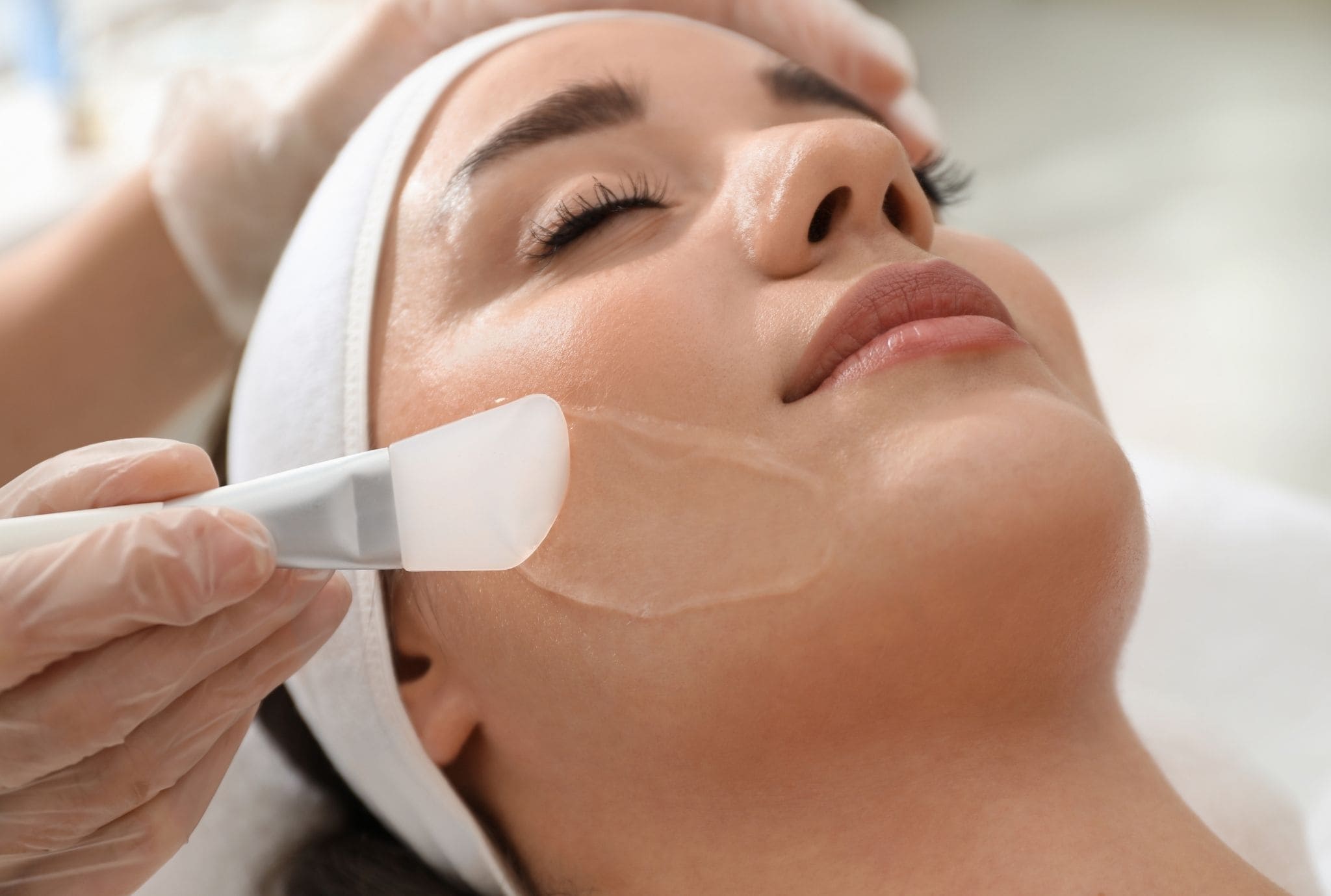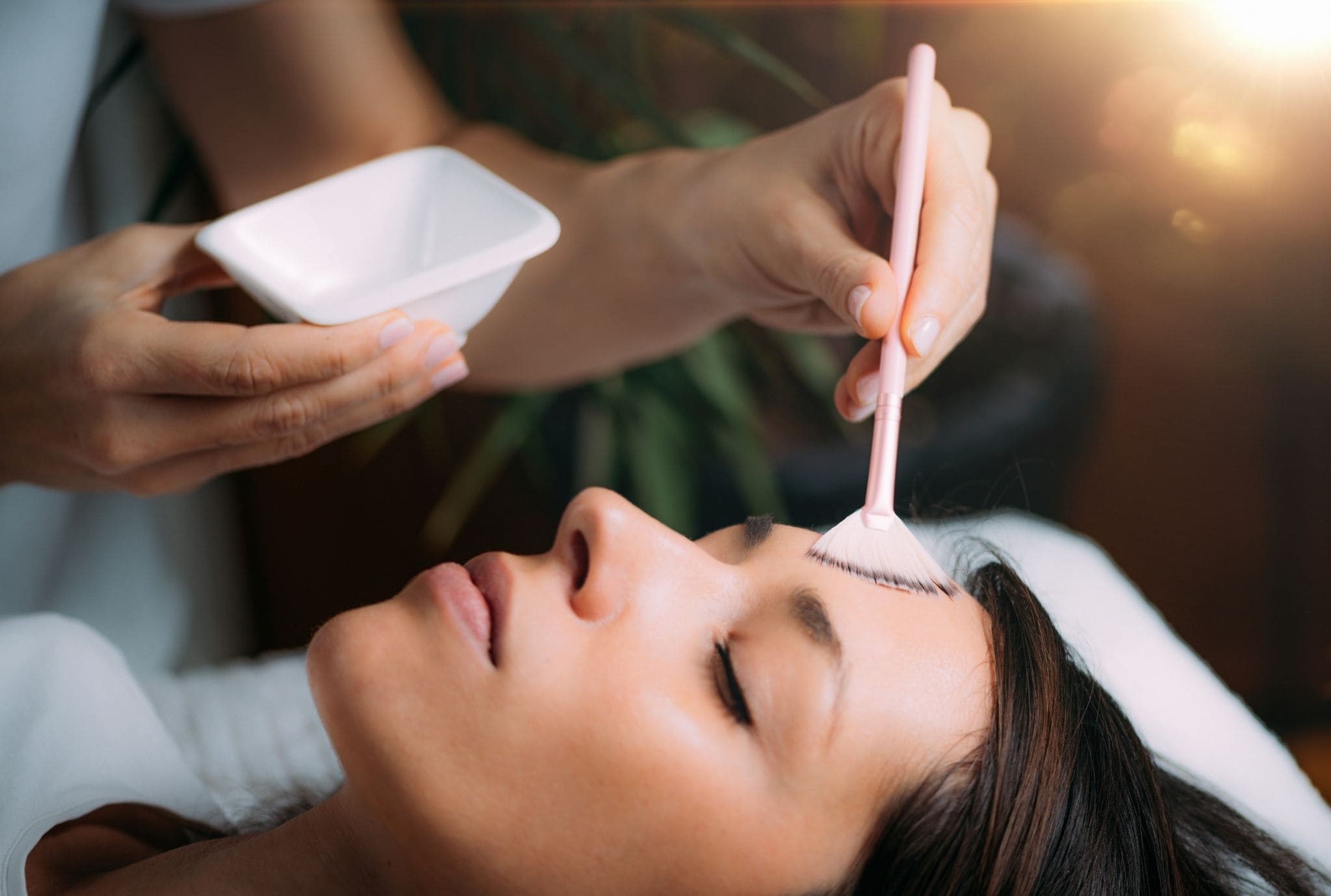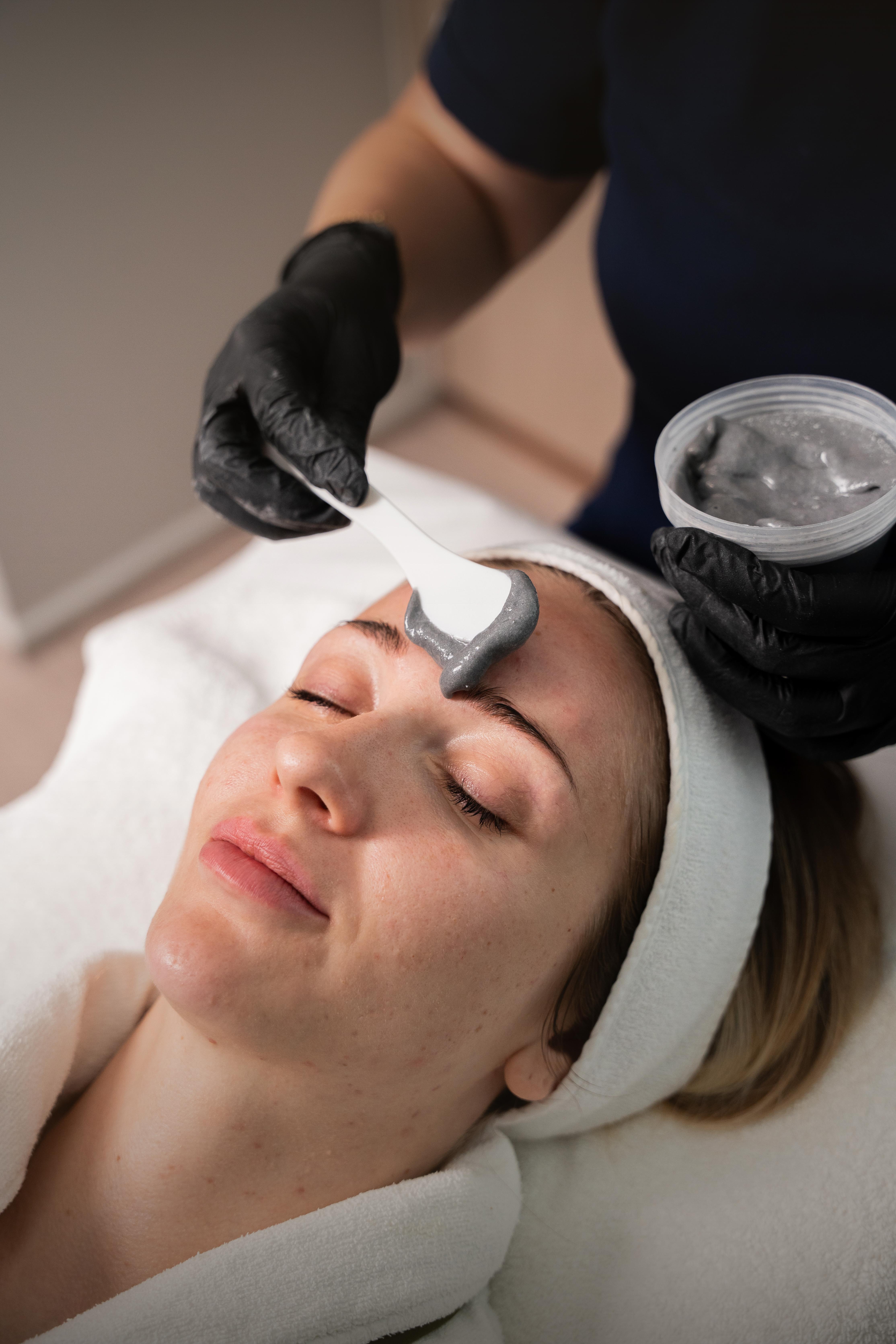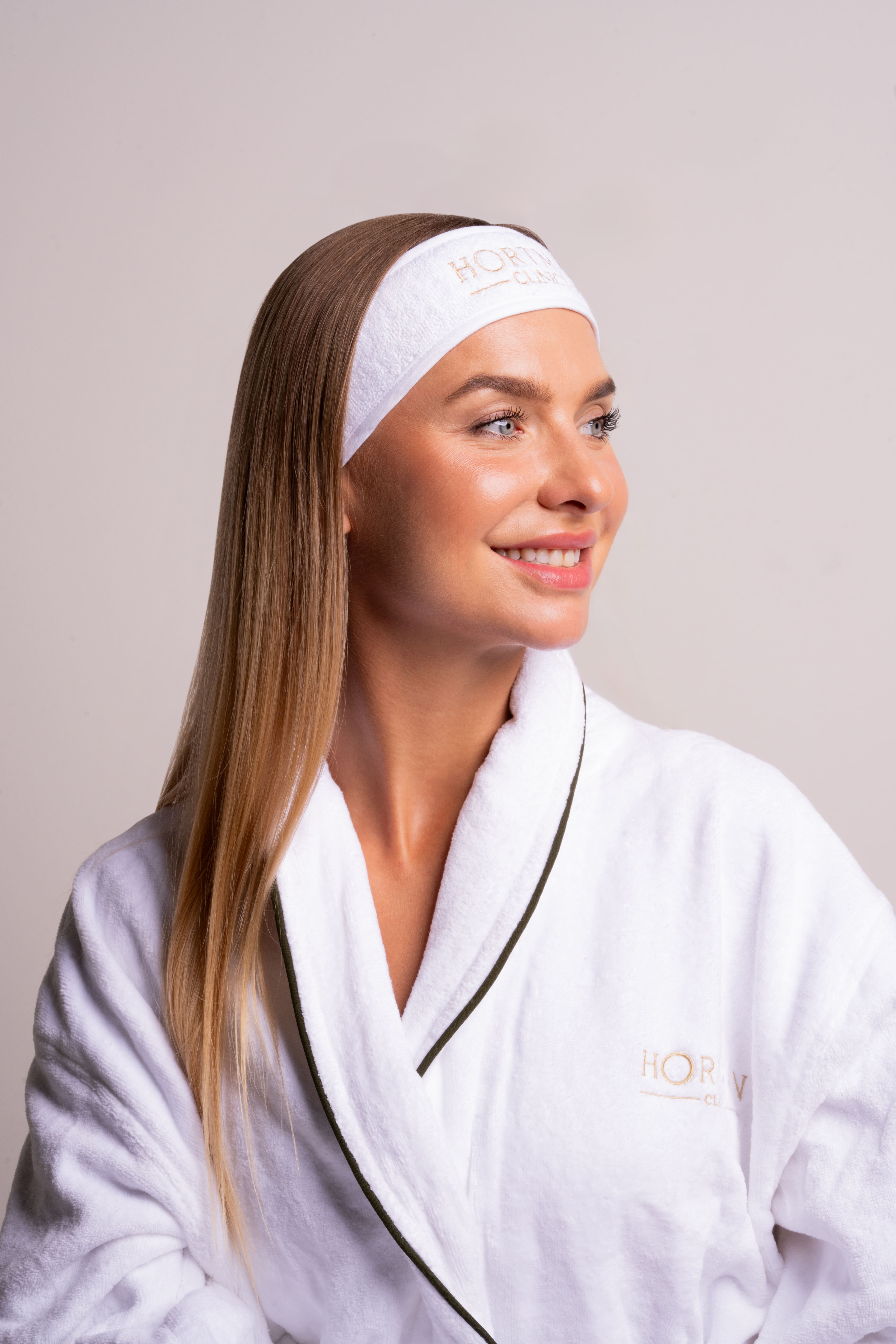Chemical Peel
Chemical peels are dermatological treatments that use acids or enzymes to exfoliate the skin, remove damaged layers, and promote regeneration. They're used to treat various skin concerns on the face, neck, hands, and sometimes the back or chest.

Book Now
What Are
What Is a Chemical Peel?
Chemical peels are a popular aesthetic dermatologic procedure that involves applying a chemical solution to targeted areas on the skin to cause the outer layer to peel off. This treatment is performed only by a trained and certified dermatologist.
In addition to removing the superficial skin layer, chemical peels stimulate the growth of new, healthy skin cells, thereby improving common skin concerns like fine lines, wrinkles, pigmentation and uneven tone and texture.
While a chemical peel is usually performed on the face, it can also be applied to other areas of the body, such as the neck, hands and chest.


Types
Types of Chemical Peels
We offer different chemical peel options at Hortman Clinics to cater to various skin concerns. Based on the depth at which they work, chemical peels can be of three primary types:
These are the mildest chemical peels available and are recommended for minor skin concerns like dullness, uneven texture, and mild hyperpigmentation. They are mainly used for acne, post-inflammatory pigmentation, and smaller patches of uneven skin tone.
As the name suggests, these peels are more intense and work deeper than superficial peels. They are used to address pigmentation disorders, multiple keratoses, and superficial scars.
These are the most intensive and are most often used to treat deep wrinkles, severe photoageing, and deep scars.
Benefits
Benefits of Chemical Peel Treatment for skin rejuvenation
Did you know that even a single session of chemical peel procedure can give visibly evident results?
Most people notice a significant improvement in the way their skin appears—it is brighter, smoother, and has a more even complexion.
A few common benefits of a chemical peel treatment include:
- Improved skin tone
- Improved skin colour, texture and clarity
- Firmer skin, giving a more radiant appearance
- Reduced pigmentation and discolouration caused by sun damage
- Improved skin hydration
- Reducing superficial scars and visible skin imperfections
- Since chemical peels exfoliate superficial skin layers, they allow other skincare products to be more effective



Best Chemical Peel for hyperpigmentation
Best Chemical Peel for hyperpigmentation
Looking for the best chemical peel for hyperpigmentation in Dubai? Here’s our list of the most effective ones recommended by our top experts at Hortman Clinics:
One of our most powerful medical peels, Cosmelan is great for depigmentation and lightening scars. It is ideal for melasma, hormonal pigmentation, and stubborn dark spots. We work with our patients to provide at-home products they can use under the guidance of our aestheticians.
This innovative, two-phase chemical peel has a dual action: biostimulating and exfoliating. Biorepeel promotes higher cell turnover, helping reduce acne scars and early signs of ageing.
Another powerful tool in the arsenal, Dermamelan is highly effective against severe and resistant skin pigmentation. Its dual action helps lighten scars and prevents the formation of new pigmented areas.
How do Chemical Peels help with acne scars, pigmentation & wrinkles?
Chemical peels are routinely used to treat and manage acne, acne scars, pigmentation and early ageing signs like wrinkles and fine lines. Here’s how they work!
- Chemical peels break down scar tissue by removing the top layers of damaged skin. This helps soften the appearance of shallow scars, especially post-acne scars.
- Medium and deep peels trigger skin repair, stimulating collagen production. This improves skin texture and fills shallow scars over time.
- Light chemical peels fade red or brown marks left behind by breakouts (post-inflammatory hyperpigmentation)
Salicylic acid, glycolic acid and TCA peels are the most effective for acne and acne scars.
Here’s how chemical peels work for reducing skin pigmentation:
- They suppress melanin production by inhibiting the enzyme tyrosinase (which drives pigment production).
- Chemical peels also remove surface pigmentation and accelerate the turnover of discoloured skin cells.
- They also help reveal fresher, more even-toned skin underneath the exfoliated outermost layers.
Mandelic acid and glycolic acid peels are highly effective in treating skin pigmentation.
Chemical peels work in the following ways to reduce fine lines and wrinkles:
- When applied to the skin, chemical peels exfoliate the dull surface, smooth the rough texture, and reduce the visibility of fine lines.
- Deeper peels trigger collagen and elastin production, improving skin firmness and reducing wrinkles over time.
- A fresher skin barrier holds hydration better, giving the skin a plumper appearance.
Chemical Peel vs laser treatment
Chemical Peel vs laser treatment: Which one works better?
To understand which one works better, let’s take a deeper look at different parameters:
- Chemical peels contain acids like glycolic or salicylic acid that remove or exfoliate the superficial skin layers.
- Lasers use focused light energy to vaporise the outermost layers of the skin.
- Chemical peels are best used for treating fine lines, acne, pigmentation, dullness and uneven skin texture.
- Lasers are ideal for deeper wrinkles, acne scars, pigmentation, and skin laxity.
- Chemical peels are more affordable.
- Lasers, especially ablative lasers, are slightly more expensive per session.
- Chemical peels are safe for use on most skin types.
- Lasers may cause hyperpigmentation when used on people with darker complexions.
- Most people require 3 to 6 sessions of a chemical peel procedure for desired results.
- Depending on the laser type, most people can see evident results in just 1 to 3 laser sessions.
- The results are more gradual and appear over several weeks after using a chemical peel.
- The results are quicker and more drastic when lasers are used, especially ablative lasers.


Chemical peel
Who is the right candidate for a Chemical Peel?
Chemical peels are safe and usually suitable for people of most skin types. Chemical peels may be for you:
- If you wish to revitalise your skin
- Want to even your skin tone or smooth your skin texture
- Are in good health and are committed to following post-treatment care instructions
A chemical peel treatment may be the right choice for you if you have the following skin conditions:
- Skin scars
- Naturally dark skin tone
- A tendency for hyperpigmentation scars
- Used acne treatments in the past year
- Skin conditions that make your skin more sensitive than usual
Consult our dermatologist at Hortman Clinics, who will evaluate your skin concern and determine if a chemical peel is the proper treatment.
Chemical Peel for acne: Is it the right solution for you?
Chemical peels containing salicylic acid are highly effective in treating active acne. In addition to its anti-inflammatory property, salicylic acid removes the outermost layers, which consist of the dead cells. This prevents dead skin cells from clogging pores and hair follicles, reducing the incidence of pimples.
The anti-inflammatory property of acne also temporarily reduces the oil secretions from the glands in the skin. Thus, salicylic acid chemical peels keep acne under check and improve the complexion.
Are chemical peels the right treatment for your acne? Consult our expert at Hortman Clinics to know more. Book a consultation today!
FAQs
Frequently asked questions
The frequency of undergoing a chemical peel varies based on the type of peel chosen:
- You can have a light peel every 2 to 5 weeks.
- You can undergo a medium peel every 3 to 4 months.
- Deep peels are more intense and long-lasting. So, you can undergo these peels once every few years.
We are here for you. Always.
Everything we do is tailored to your needs, this is why we take our time to take care of you and answer all your questions.

